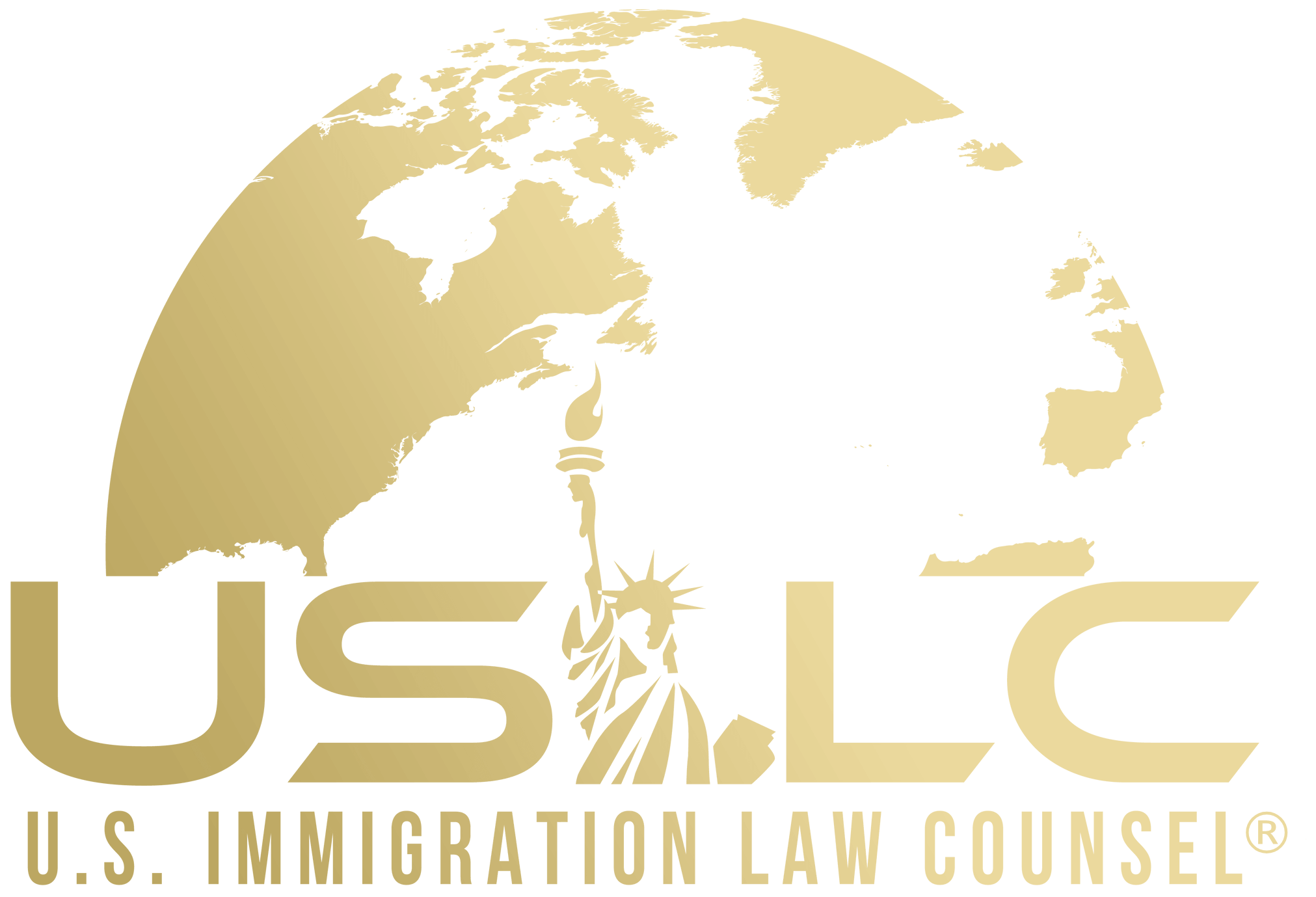Family sponsorship accounts for most applications filed annually for US permanent resident status. Despite that, there are still a significant number of immigrants who find a pathway to permanent residency through the employer-sponsored Green Card process. Employers have multiple options for sponsoring a worker for permanent resident status, and the primary ones include:
- EB-1 – Priority Workers: Outstanding professors/researchers; multinational executives/managers; and aliens who possess extraordinary ability in the arts, sciences, business, and other fields.
- EB-2 – Professionals with advanced degrees or the equivalent or people who possess exceptional ability in the arts, sciences, or business.
- EB-3 – Professionals, skilled workers – those who possess a bachelor’s degree or at least 2 years of skilled labor or unskilled labor (if it is determined that no qualified US workers are available)
There are also less common routes for acquiring an employer-sponsored Green Card, such as EB-4, which includes religious workers and certain physicians, and EB-5, for immigrant investors with substantial money to fund a US business. Nevertheless, a successful outcome will most certainly depend on meeting all the specific requirements for each of the above categories – and avoiding all the red flags.
So, if you are wondering, can my employer sponsor me for a Green Card? The answer is that it will depend on various factors, some of which will be discussed below. However, if you’re fortunate enough to find a company that is willing to undergo the employer-sponsored Green Card process on your behalf, then it is important to understand the common red flags that could derail the process.
What are some of the most common red flags?
The Position Seems Tailored To Match the Beneficiary’s Credentials
When preparing a job description for the proposed position, it may be tempting for an employer to tailor the duties and required background to match the experience of the beneficiary they are hoping to permanently hire. For EB-2 and EB-3 filings, an employer must first file a labor certification through the Labor Department’s Program Electronic Review Management System (PERM) to demonstrate that no qualified US workers applied for the position. However, an employer may be tempted to include some unnecessary job requirements simply because the potential employee possesses those skills – even if the normal job duties for that position wouldn’t require those skills. An employer may also request a particular language skill when it isn’t unnecessary.
To help ensure that the proposed job doesn’t seem designed to give the beneficiary an unfair advantage, an employer should include a detailed justification for the job requirements that demonstrates why the company needs to have the employee possess certain skills and why certain duties must be performed in the job.
Employer and Beneficiary are Related
When it comes to employer-sponsored Green Cards, the U.S. Citizenship and Immigration Service (USCIS) will not only consider whether the application has been tailored to fit the beneficiary’s background, but they will also seek out any other signs of bias. Many people do not realize that if the beneficiary is closely related to the petitioner, it can also trigger a red flag. This can make it more difficult for the immigrant petition to be approved, as it may raise suspicions that the application is only being filed as a means of hiring the employer’s relative and that the position is not actually open to a general field of applicants. Small companies will especially come under scrutiny if the employer and beneficiary are closely related.
While it is not prohibited for an employer to hire a beneficiary who is a relative, extra effort may be needed to avoid showing bias. If the beneficiary of an employer-sponsored Green Card application is related to the owner of the company sponsoring him or her, then it will be crucial to provide clear proof that the recruitment process was open to all qualifying applicants. Proof will also be needed to demonstrate that the relative not only qualifies for the proposed position but that they’re also just one of the applicants being considered for the job.
Employer Cannot Pay the Wage Offered
Another common red flag that could increase the potential for a denial of an employment-sponsored green card application is if the employer seems unable to pay the wage offered. If an employer cannot prove this, then the petition will ultimately be denied. Immigration officers will review the company’s financial documents to determine if it generates enough revenue to cover the employee’s salary and business expenses. If a company’s annual revenue is considered too small to cover salary payments, then the application will be denied.
Companies must provide sufficient financial documentation during the employer-sponsored Green Card process if they do not want to raise a red flag. Sponsoring companies will need to submit proof that they have the capacity to pay the wage offered in the PERM and/or immigrant petition. This type of proof should include documents such as financial reports, balance sheet statements, and tax filings.
Beneficiary Doesn’t Meet Requirements for the Job Offered
All employment business categories have specific requirements that a potential employee must meet to be considered qualified for the job offered. The USCIS will review the petition to ensure that the beneficiary meets the employment, educational, or other requirements that the position entails. For example, beneficiaries in EB-2 petitions must hold advanced degrees or the equivalent in combined education/work experience. Also, some beneficiaries applying in the EB-1 category must show proof that they meet the high-level bar for outstanding professors/ researchers or aliens who possess extraordinary abilities in the arts, sciences, business, and other fields.
To prove that you do, in fact, meet the particular requirements for an employment-sponsored Green Card category, you should provide evidence of your educational credentials, including evaluations if necessary. You should also be prepared to provide proof of your employment background and your achievements, your status in the field, and any other evidence outlined in your immigration petition category.
Discrepancies and Errors in the Green Card Application
These are among the most common problems that can hold up or even sabotage even the most well-prepared employer-sponsored Green Card application. If there are substantial errors or discrepancies in the paperwork, they will trigger automatic red flags. These can include such issues as discrepancies between the information in the PERM application and the I-140 petition, and errors in company names, and other important information. Another common error is if the employer provides supporting financial documents that contradict the information in the immigrant petition.
That is why one of the most important steps for an employer to take before filing a green card application is to ensure that the petition doesn’t contain the type of errors that could negatively impact the petition. For example, the job details should mimic the information stated in the PERM application. Even if the type of petition filed did not require a PERM application, it is still important to ensure that all the information in the petition is correct and that the documents included fully support all the information provided.
What if Your Employer-Sponsored Green Card Is Denied?
Company sponsored Green Card processing times can vary depending on the type of application filed. Petitions that require PERM applications to be filed as a first step will naturally take the longest to reach adjudication. However, sometimes even when an employer takes great care to present everything they believe will be required for a successful case, they may still receive a denial.
It may seem completely hopeless at that point, but a company should first review the reasons for the denial before taking the next step. Are these issues that the company can address, such as correctable errors in the paperwork? If so, then it may be worth appealing the denial of an employment-sponsored Green Card petition. A denial may also jeopardize someone’s ability to remain in the U.S. if their nonimmigrant status cannot be extended. If you are in this position, you may need to seek out other possible sponsors or visa options. Of course, if your petition was denied due to more serious issues, such as providing a fraudulent degree or other supporting documents, then filing for a new visa or other relief may not be an option.
Seek Help From an Immigration Attorney
Consequently, you may be asking, how can my employer sponsor me for a Green Card? The best way to determine which steps to take is to seek the help of an immigration attorney who has experience preparing employment-based Green Card applications. Immigration laws can be extremely complex, especially when it comes to the employer-sponsored Green Card process. An immigration attorney can guide you through the legal processes, requirements, and challenges. If your application is unfortunately denied, an attorney can let you know your best options for moving forward. You may still be able to secure that dream job!
Contact us today at U.S. Immigration Law Counsel® by filling out our online form or contacting us directly at 800-666-4996 to speak with one of our attorneys. Our immigration lawyers will deal with the government, so you don’t have to!





